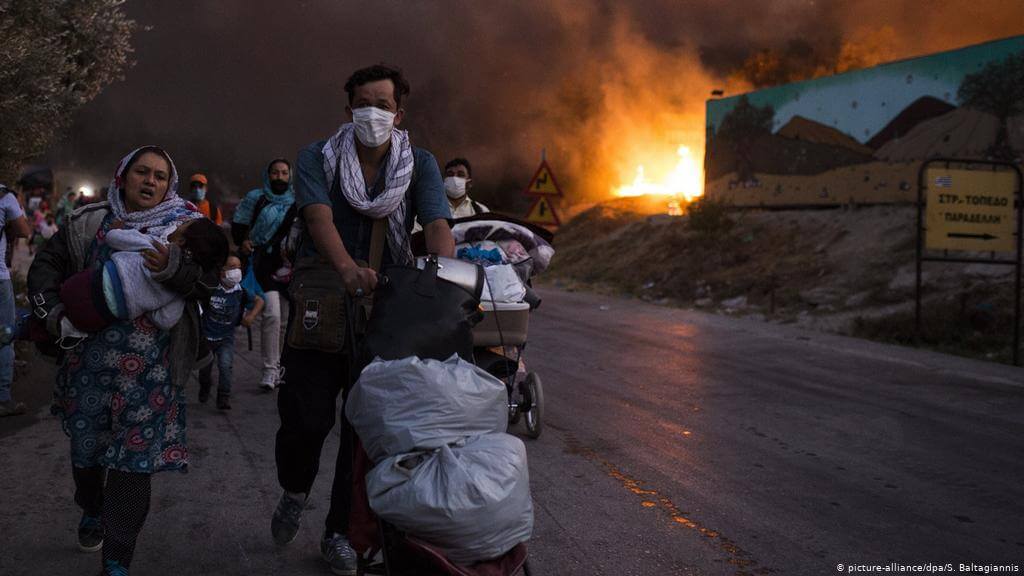More than 12,000 refugees have been rendered homeless after a fire ravaged Greece’s largest refugee camp at Lesbos island on Tuesday and Wednesday.
The camp, named Moria, has long been criticized for its horrific living conditions, including overcrowding, poor sanitation, and lack of soap and water taps. Though designed to only accommodate around 3,000 people, Moria has been filled with an influx of migrants since 2016, sometimes reaching as high as 20,000 refugees, with numbers increasing especially after Europe started blocking their paths.
No deaths were initially reported, but vast stretches of the camp were destroyed by the flames, sparing only a medical facility and a few clusters of tents. Though the exact cause of the blaze remains unclear, Greece’s migration minister has accused refugees and migrants of deliberately starting the fire to protest against COVID-19 quarantine rules. Meanwhile, some migrants said that the blaze was the result of a scuffle between some camp residents and Greek forces. Experts, however, have linked the incident to the inevitable explosion of a metaphorical time bomb, given that people were being forced to survive in “inhumane conditions” at the site for many years.
European Union (EU) Commission President Ursula von der Leyen said on Wednesday that she was “deeply sorrowed” by the events in Greece, and said that the commission would be ready to support the island to ensure the safety of those who lost their shelters. Germany and France also said on Thursday that they would host unaccompanied minors who resided in Moria, and urged other member states to join the initiative, stressing that it is “a European problem”. The Netherlands has also offered to take “50 minor unaccompanied foreign nationals and 50 people in a family relationship with minor children who were affected by the fires on Lesbos,” deputy Justice and Security minister Ankie Broekers-Knol said in a statement. The United States State Department said on Thursday that it was assessing needs, and would continue to provide emergency humanitarian assistance for those displaced.
Greek officials have said that a majority of those affected would remain in Lesbos, and would be housed in emergency accommodation facilities. Prime Minister Kyriakos Mitsotakis called on Europe to “move from words of solidarity to a policy of acts of solidarity” and urged leaders to engage in more concrete discussions about the continent’s migration crisis. Amnesty International also criticized the EU’s “reckless” policies on migration and asylum on Wednesday and urged member states to revisit them in order to ensure the safety of everyone affected.
Fire Destroys Majority of Europe’s Largest Refugee Camp
The blaze in Greece has rendered more than 12,000 people without any shelter.
September 11, 2020

SOURCE: DW
